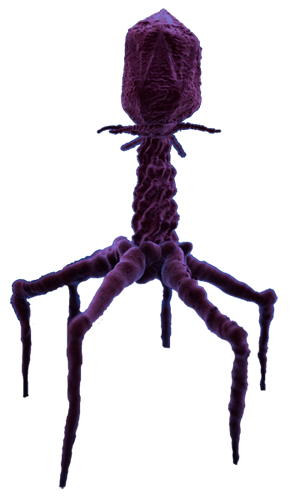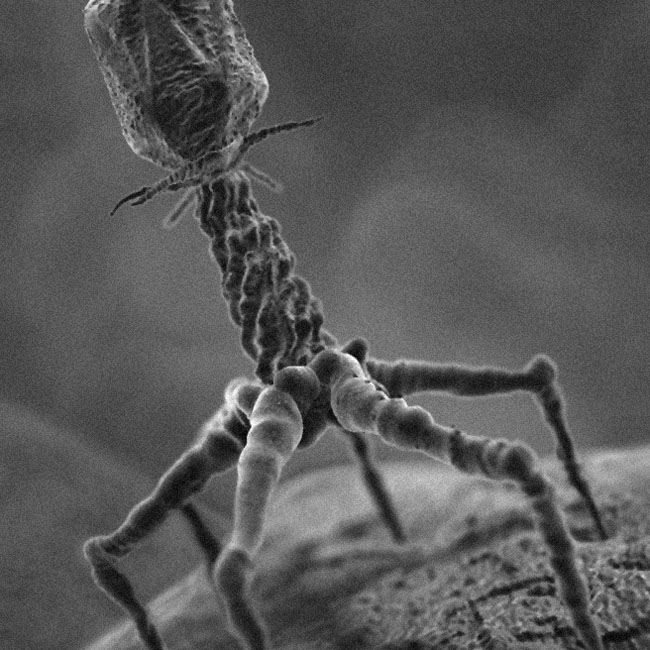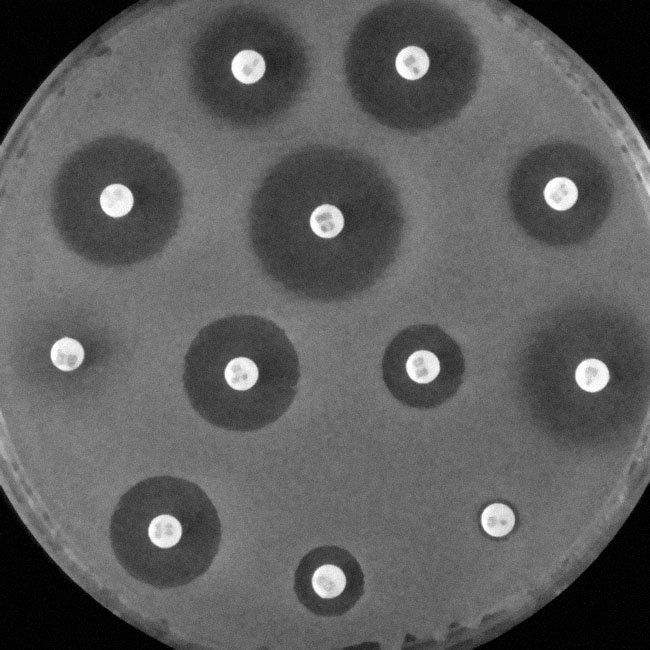Antimicrobial resistance (AMR) had become a global health threat. The wide spread use and in some cases misuse of antibiotics has spurned the generation of new bacterial strains highly resistant to antibiotics. This means that a rising number of bacteria cannot be treated with the arsenal of standard antibiotics. Broad-spectrum antibiotics have made the problem worse by killing a wide range of microbes thereby allowing superbugs to multiply unchecked.
Controlling the Spread of Pathogenic Bacteria with Bacteriophages


What is bacteriophage?
Bacteriophages – phages, for short – are the most abundant and ubiquitous organisms on our planet. Bacteriophages are bacterial viruses, meaning that they target and kill (only) bacteria. A specific bacteriophage seeks out host bacteria to which it is active, attaching itself to the exterior of the bacterial cell wall, and injecting its DNA into the bacterium. The phage’s DNA then highjacks the cell’s reproduction mechanism and reprograms it to produce bacteriophage particles (a process similar to many other viruses). During this active infection process and after the phage has sufficiently multiplied and assembled phage progeny within the cell, enzymes are released by the phages which lyse the outer wall of the bacteria, killing the bacteria and releasing new bacteriophage into the environment to find and attack other bacteria of that type. Since phages multiply geometrically, a bacterial concentration (i.e., an infection) can be decimated literally within hours.
Bacteriophages have no effect on human or animal cells, or viruses, molds, fungi, parasites or other non-bacterial organisms . Bacteriophages only target bacteria, and even then only specific bacterial strains.
Why do we care about bacteriophages?
We have all become aware that Antimicrobial Resistance (AMR) is on the rise, meaning that our current antibiotics are losing (or have lost!) their effectiveness to combat different bacterial infections. Antibiotic resistant bacterial strains such as Methicillin Resistant Staphylococcus aureus – (MRSA), Clostridium difficile (C. difficile) and Extended Spectrum Beta-lactamases (ESBL)-producing bacterial strains including Klebsiella, Escherichia coli (E.coli) and Acinetobacter. These are becoming major sources of dangerous hospital acquired infections (HAIs).
The overuse and misuse of antibiotics are contributing greatly to bacteria evolving to become antibiotic resistant. Even when used solely to treat infections, doctors tend to overprescribe antibiotics. But mankind also is accelerating this process as antibiotics are often not even being used to combat infection but instead are being used to promote growth in livestock. The percentage of bacterial strains resistant to an antibiotic is increasing over time and the effectiveness of our antibiotics are declining.


As a consequence, just in the United States, the Centers for Disease Control (CDC) estimates that two million people become ill from drug-resistant bacteria each year, with over 23,000 deaths resulting from those infections. Globally, drug resistance (including all antimicrobials) kills over 700,000 people each year, a number predicted to rise to 10 million deaths annually by 2050 if not addressed soon.
Still, drug companies have been reluctant to invest in new antibiotics, which can cost over a decade in research and a billion dollars in clinical trials before earning FDA approval and bringing a treatment to market. And, many attempts are failing today and will fail in the near future! The head of the World Health Organization reminds us that only two new classes of antibiotics have reached the market in the past 50 years. No new antibiotics have become available in two decades.
AMR portends a resurgent interest in worldwide bacteriophage research, applications and treatments. While bacteriophages are not the only solution to AMR, they will be one arrow in the quiver of human responses to this global problem. After all, phages have been a natural enemy of bacteria for billions of years and will continue to be such for billions more!
